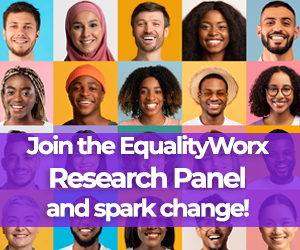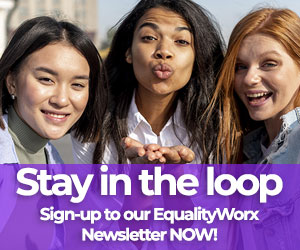What’s up, second-gen community? A recent Guardian article revealed a tough reality in the UK: overseas-trained dentists are working at McDonald’s because red tape stops them from practicing, while millions struggle to access dental care. This isn’t just a UK problem – Ireland’s facing a similar challenge, with qualified professionals from abroad, like doctors, dentists, and nurses, stuck in low-skilled jobs due to complex barriers. For second-gen Gen Z, this hits close to home, as many of your families may face these struggles.
The UK’s Dental Crisis Reflects Ireland’s Struggle
The Guardian reports that 6,000 overseas-qualified dentists in the UK are waiting to take the Overseas Registration Exam (ORE) to join the General Dental Council’s register, but only 600 spots are available twice a year. This backlog forces skilled professionals, like an Egyptian dentist with a master’s in implantology working at McDonald’s, into low-skilled roles. Meanwhile, England’s NHS had 2,749 dentist vacancies in 2023–24, and 4.5 million people lack dental care access. The Association of Dental Groups calls this an “unacceptable waste” of talent, urging less bureaucracy to fill gaps.
Ireland’s story isn’t much different. A 2023 Health Service Executive (HSE) report notes that non-EU dentists and doctors face long delays registering with the Dental Council or Medical Council of Ireland due to strict verification and limited exam capacity. Only 50–100 overseas dentists register annually, despite over 200 applicants, while 44% of adults skipped dental visits in 2022, per Eurostat. Qualified professionals end up driving licensed cabs in Ireland or working in retail, highlighting a system that’s failing both them and the public.
Beyond Dentists: A Wider Talent Waste
The problem extends beyond dentistry. A 2024 Eurofound study found 30% of non-EU migrants with professional qualifications in Ireland work in low-skilled jobs, like hospitality or construction, compared to 10% of EU migrants. For instance, only 400 of 1,200 non-EU nurses applying for registration in 2023 were approved, per the Nursing and Midwifery Board of Ireland’s annual report. Engineers and teachers face similar hurdles with bodies like Engineers Ireland, leaving talent untapped. This overqualification costs Ireland €500 million yearly in lost economic output, per Eurofound.
Gen Z, you’re mindful about avoiding waste, choosing meaningful paths over excess. Seeing skilled professionals sidelined feels like a loss for Ireland’s future. Your families – perhaps engineers or nurses back home – may be working as baristas at Insomnia or as drivers because their credentials aren’t recognised. Gen Flow’s tech-savvy approach, with 45% of you finding brands via social media, has you engaging on X with #MigrantSkills to highlight these stories, pushing for a system that values talent.
Why the Barriers Persist
Ireland’s registration processes are slow and costly, blocking overseas professionals. The HSE’s 2023 report details non-EU doctors needing English proficiency tests (€300–€500), document verification (€1,000), and exams with 40% pass rates. Dentists face 6–18-month delays, per a 2024 Irish Dental Association statement, while Ireland’s health system struggles with 2,500 doctor vacancies (Irish Medical Organisation, 2023) and 20% of dental practices not accepting new patients (Citizens Information, 2024). This gap between need and talent is frustrating when professionals are ready to contribute.
Second-gen youth, you understand this struggle. Your families’ journeys – leaving homelands, facing challenges – shape your resilience, but seeing their skills ignored feels unfair. Like the UK’s dentists, Ireland’s professionals are sidelined by outdated systems, worsened by far-right narratives questioning their value. You’re using Gen Flow’s digital tools, like WhatsApp to organise meetups or to attend community events, to discuss solutions and build solidarity,
Impact on Second-Gen Gen Z
This issue affects second-gen Gen Z deeply. A 2023 Migrant Integration Strategy report found 25% of second-gen youth say their parents’ underemployment influences their career worries, pushing you to overachieve or avoid fields with barriers. Watching your families’ qualifications go unrecognised can feel like a challenge to your dual identity, blending heritage with ambition.
This isn’t just about jobs – it’s about respect for your families’ sacrifices. The Guardian’s UK example shows dentists losing hope; in Ireland, doctors and nurses face similar setbacks. Your generation’s focus on meaningful experiences, drives you to demand systems that honour your families’ contributions, not block them. You’re building networks through digital platforms and community events to push for fairness.
Ireland Must Act Now
Ireland can learn from the UK’s crisis and act. Streamlining registration – more exam slots, faster verification, provisional licensing – could unlock talent, as Germany’s simplified processes boosted migrant employment by 20%, per Eurofound. Ireland’s health system needs these professionals to address 2,500 doctor shortages and 20% dental access gaps. Policymakers and brands should support integration programs and feature overseas professionals in campaigns, countering far-right narratives.
Second-gen community, your voice is key. Share a 300–500-word piece at equalityworx.com/submit about how your family’s skills are underused or why Ireland must value overseas professionals. Post a clip on X or Instagram with #EqualityWorxVibe and tag @EqualityWorx – we’ll amplify it. You’re shaping Ireland’s future with Gen Flow’s digital drive, honouring your roots while building a fairer system. Let’s make this a movement! 🌍 #EqualityWorxVibe
Share this content:
Join the EqualityWorx Vibe!



















